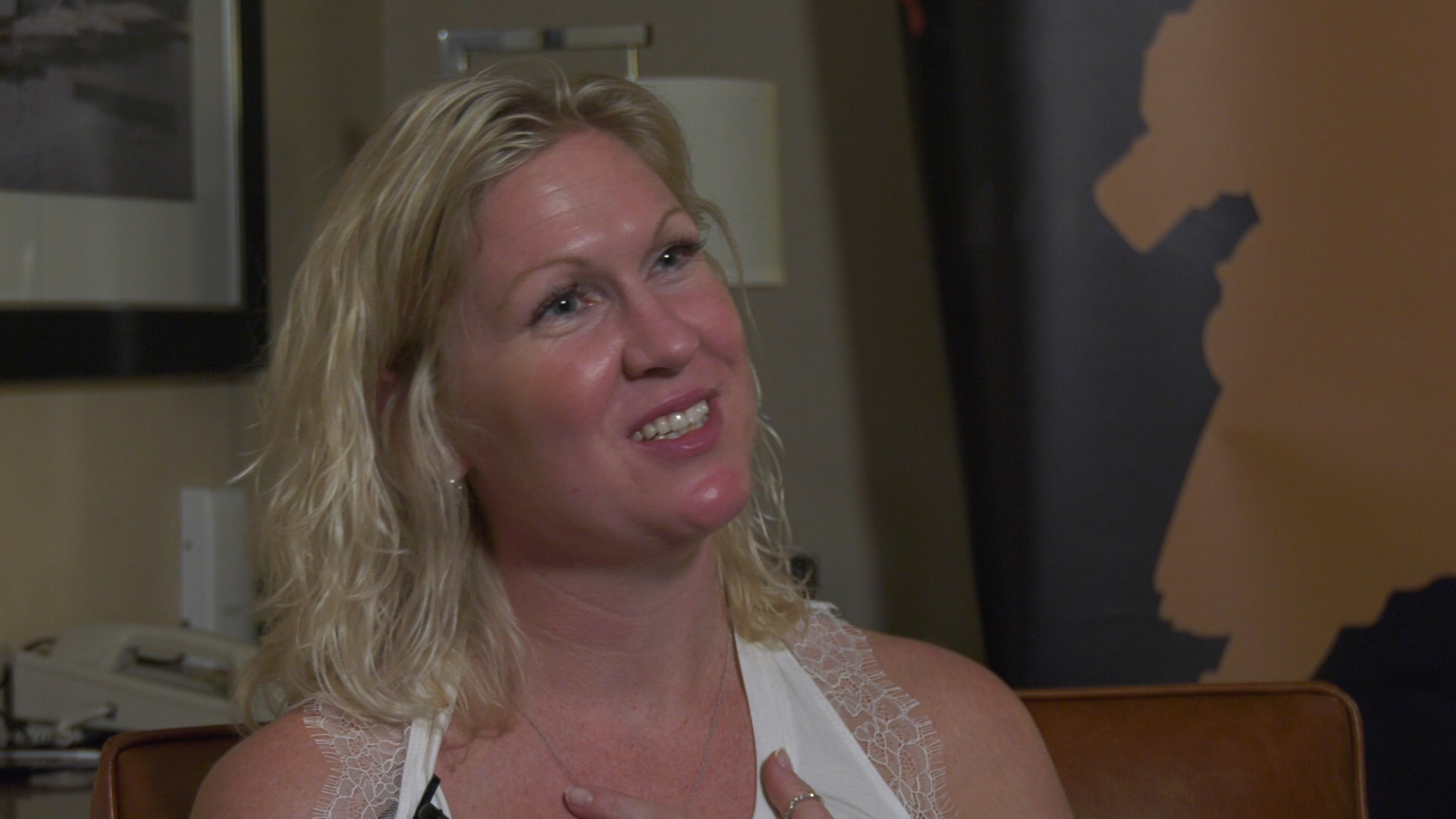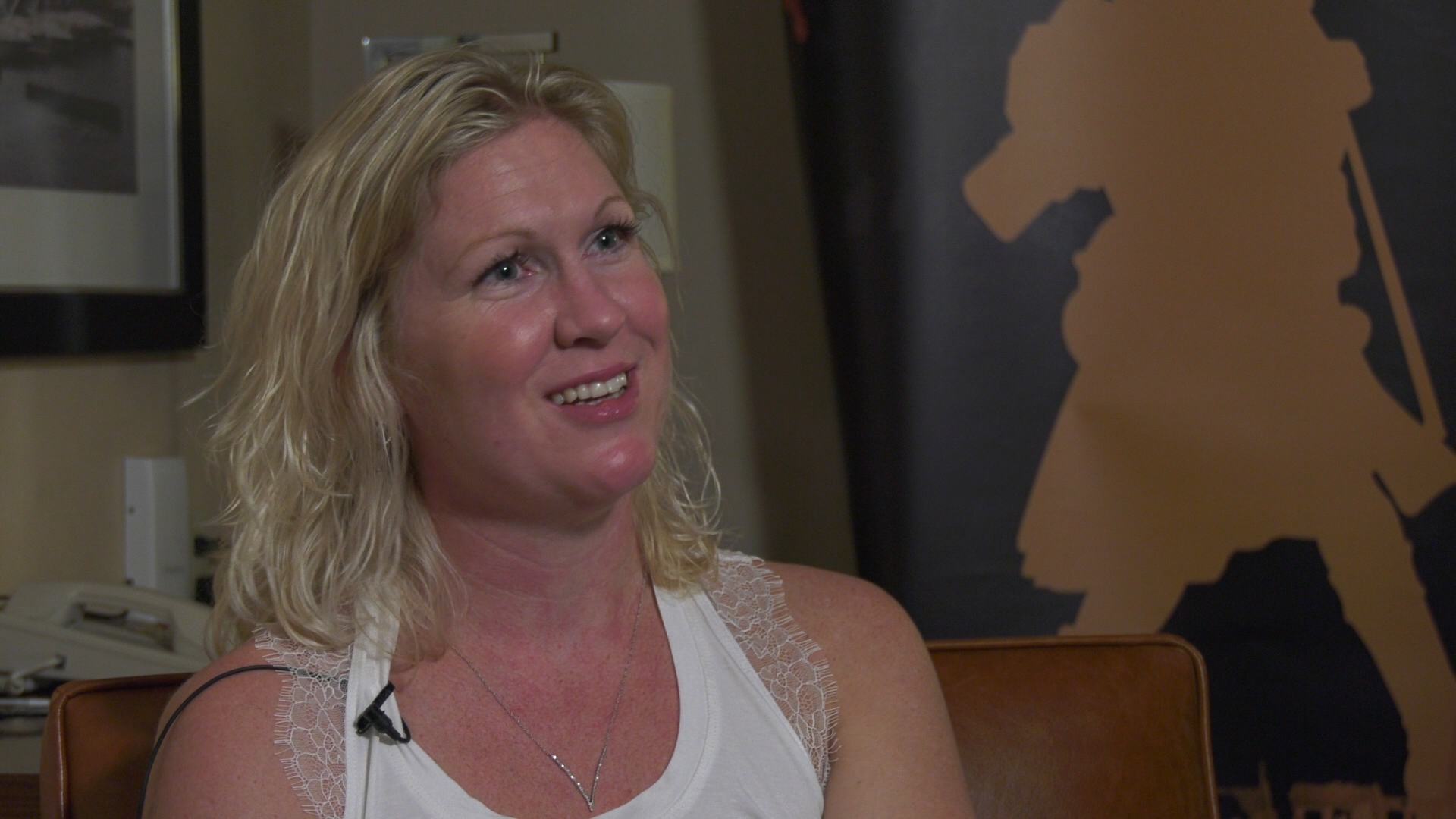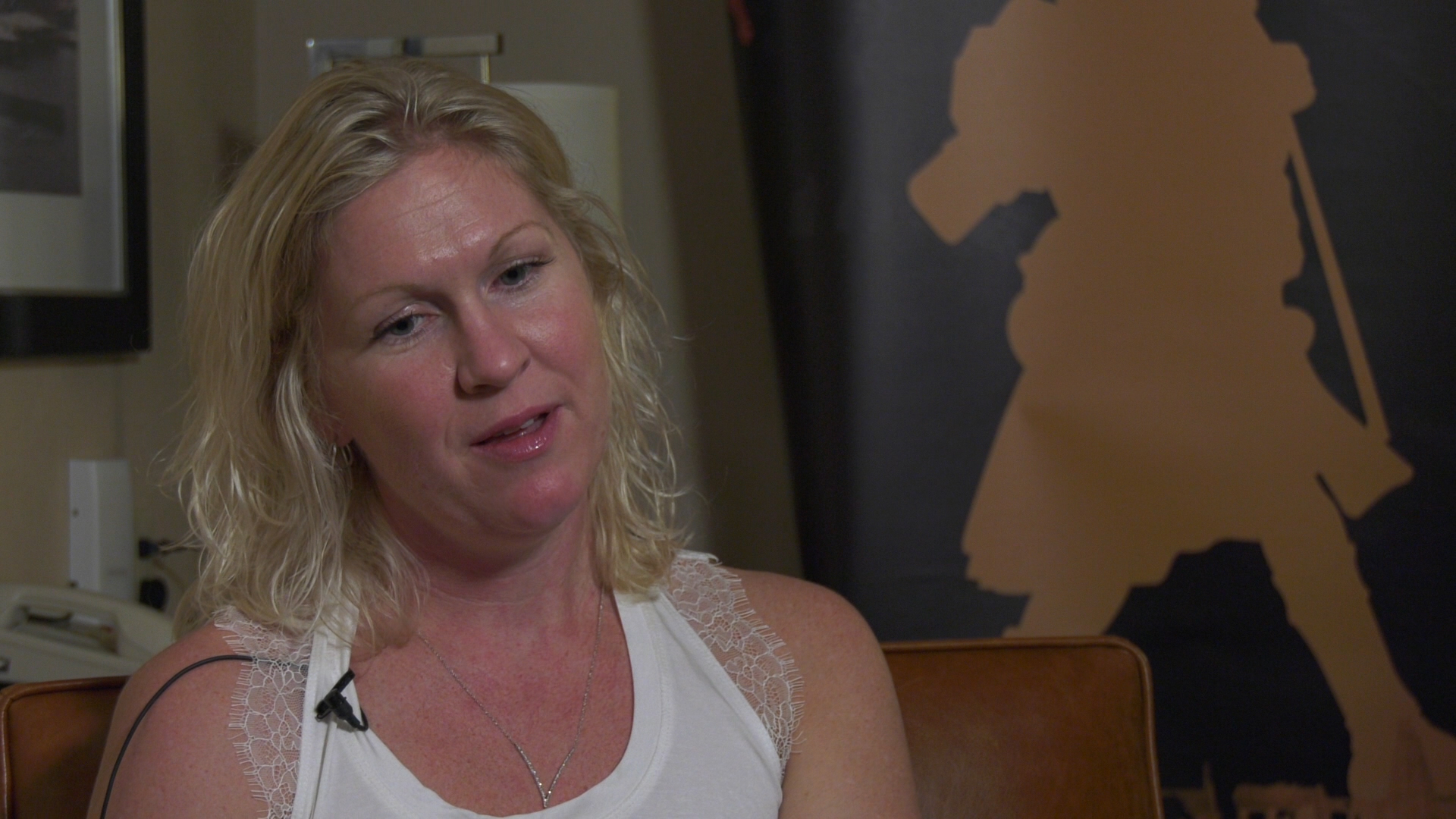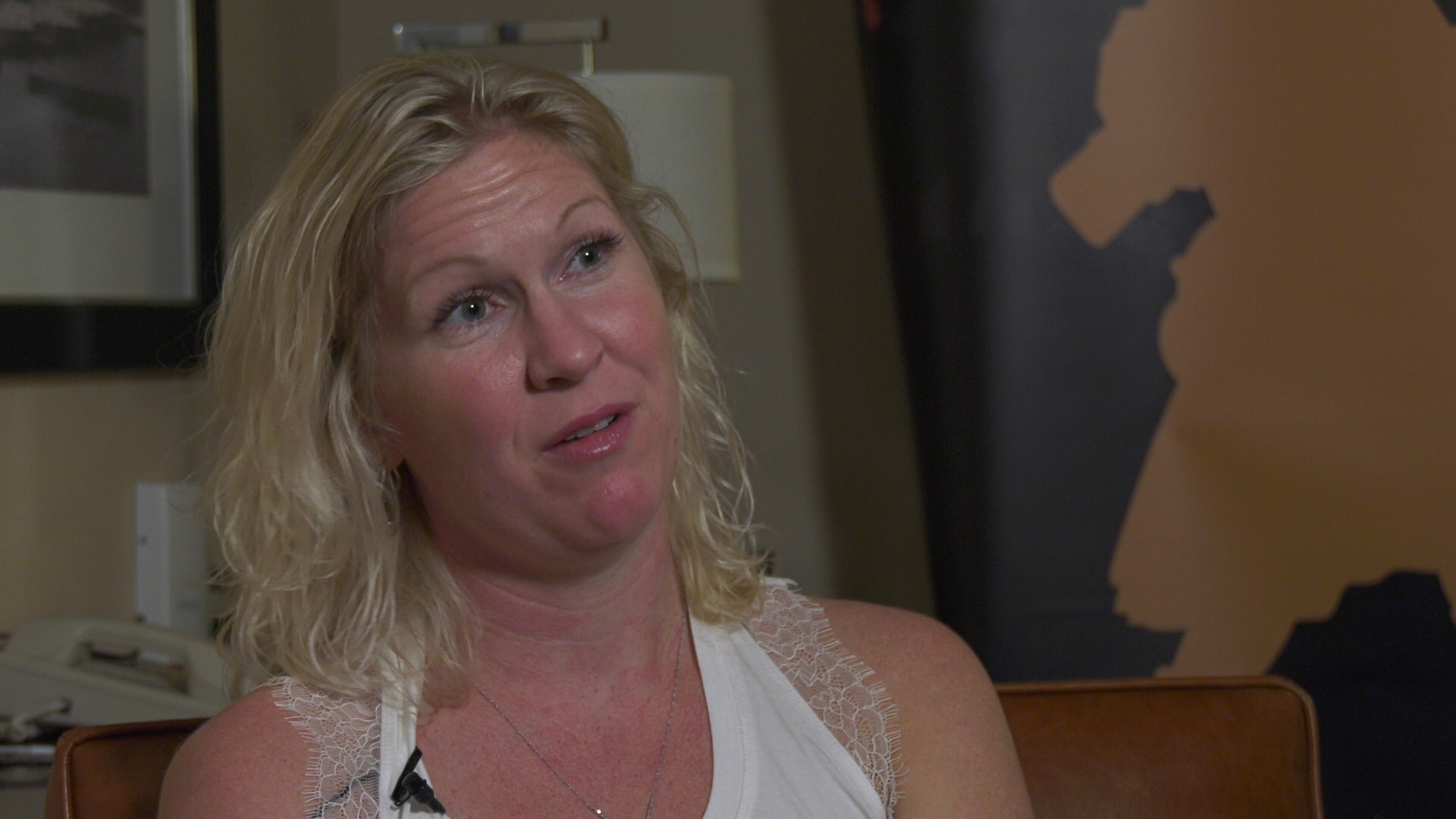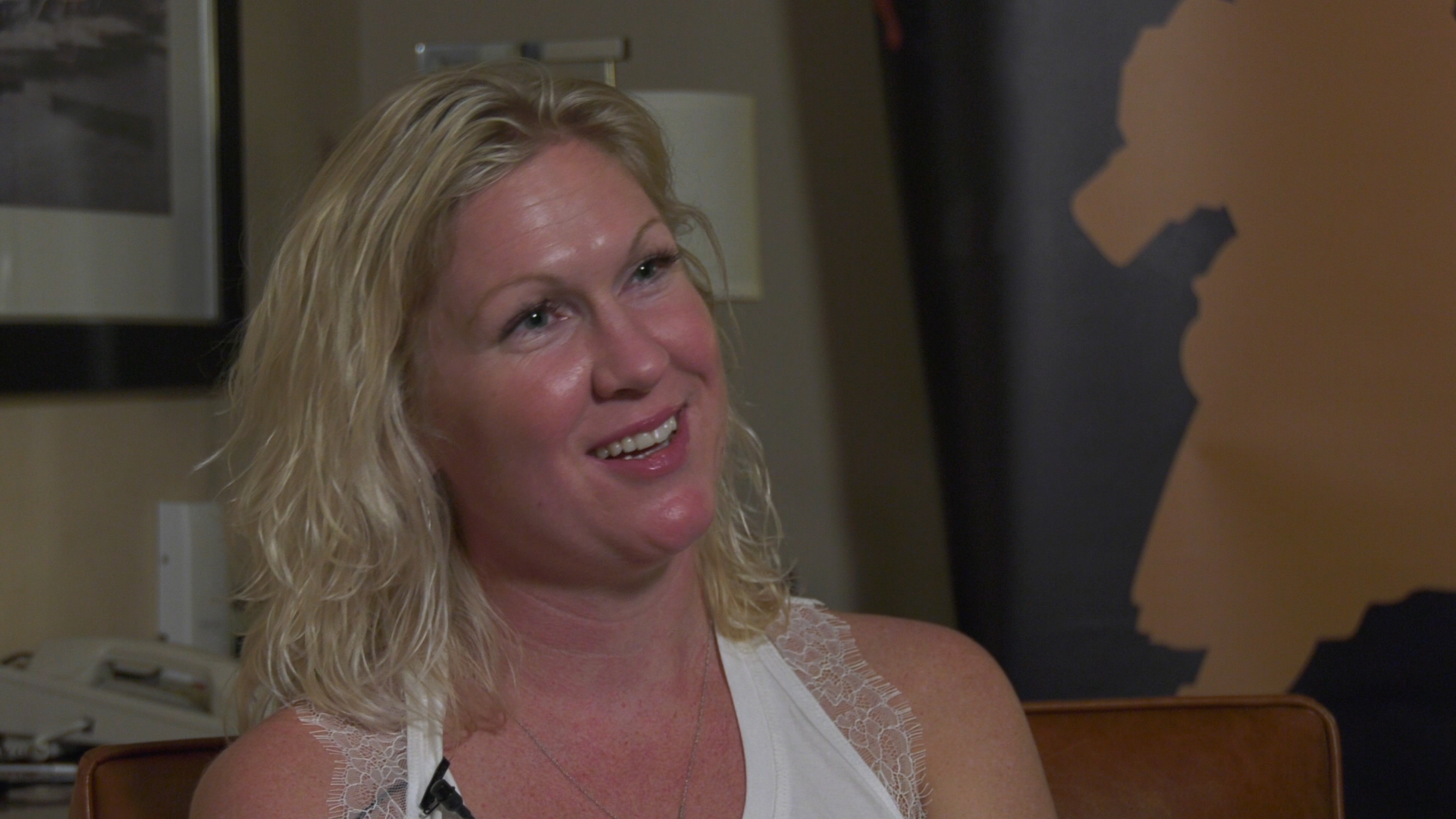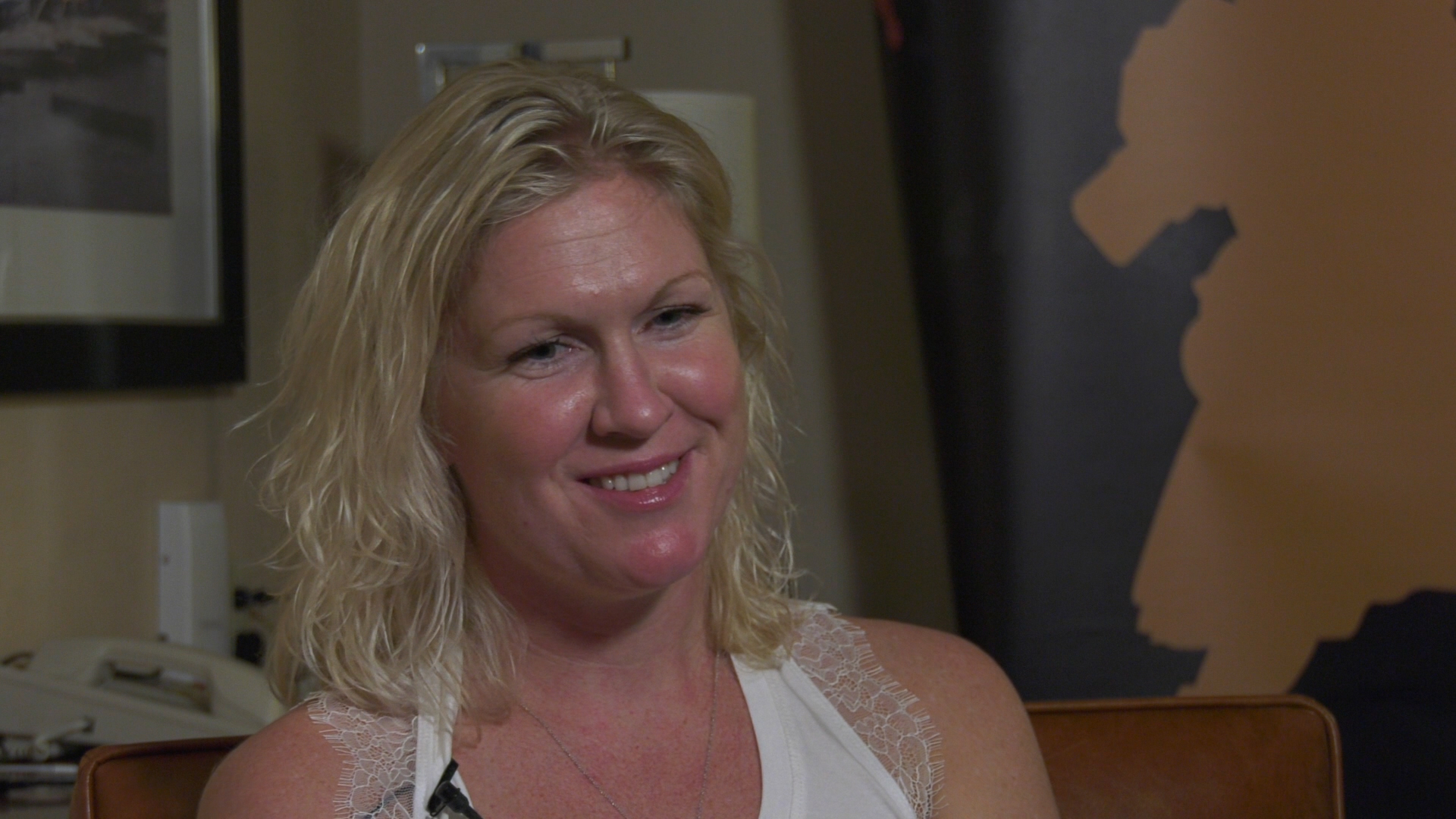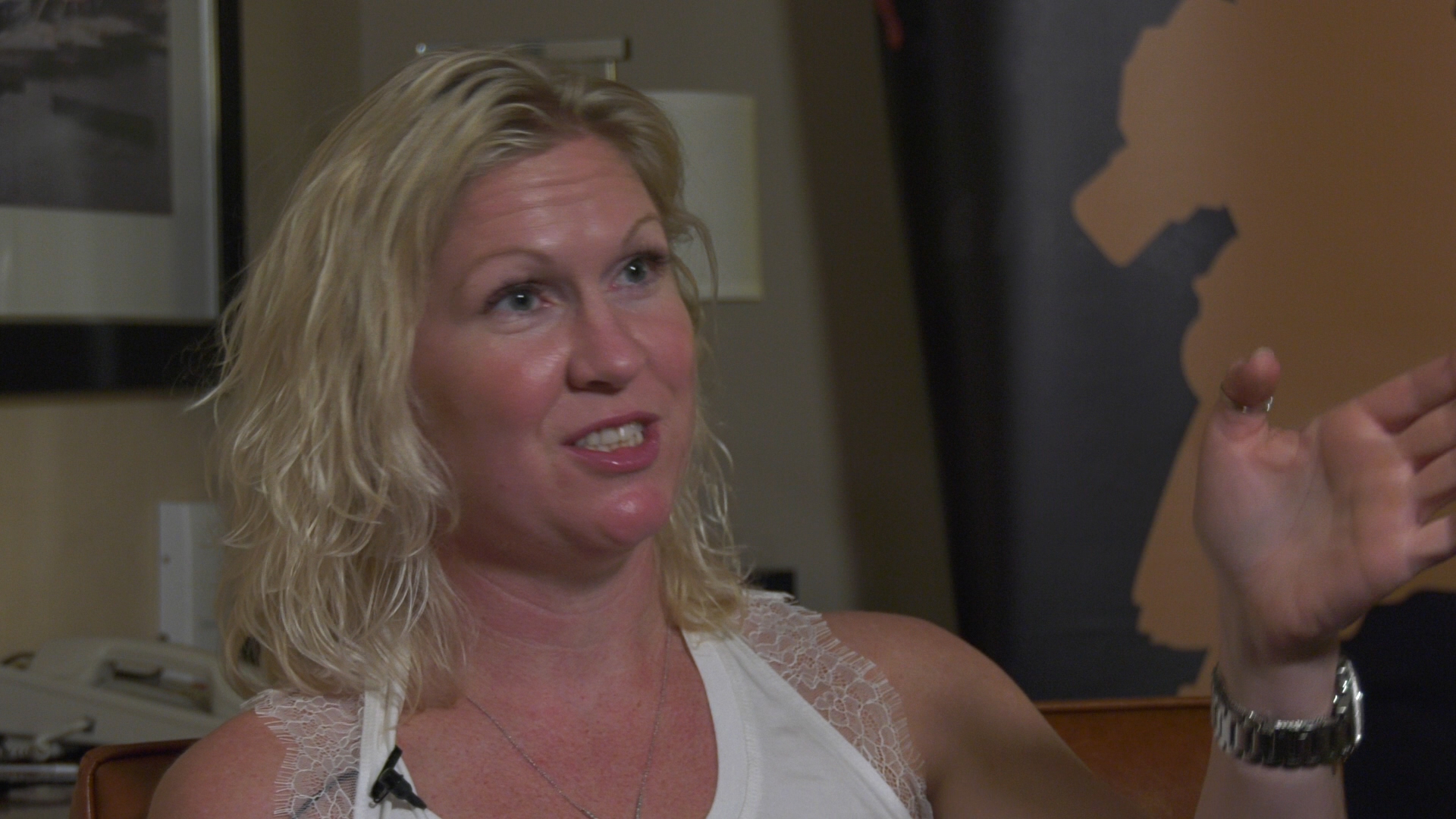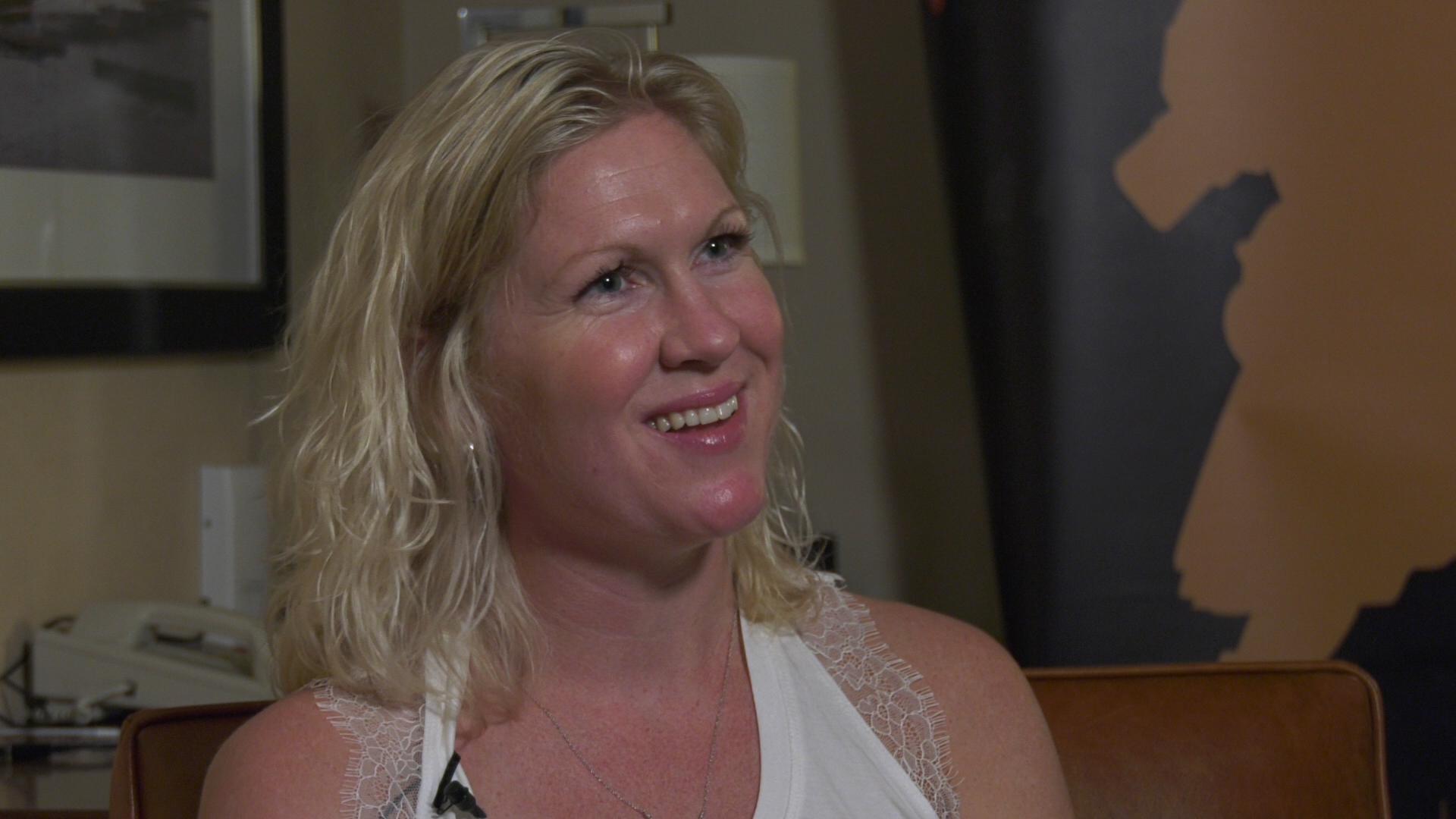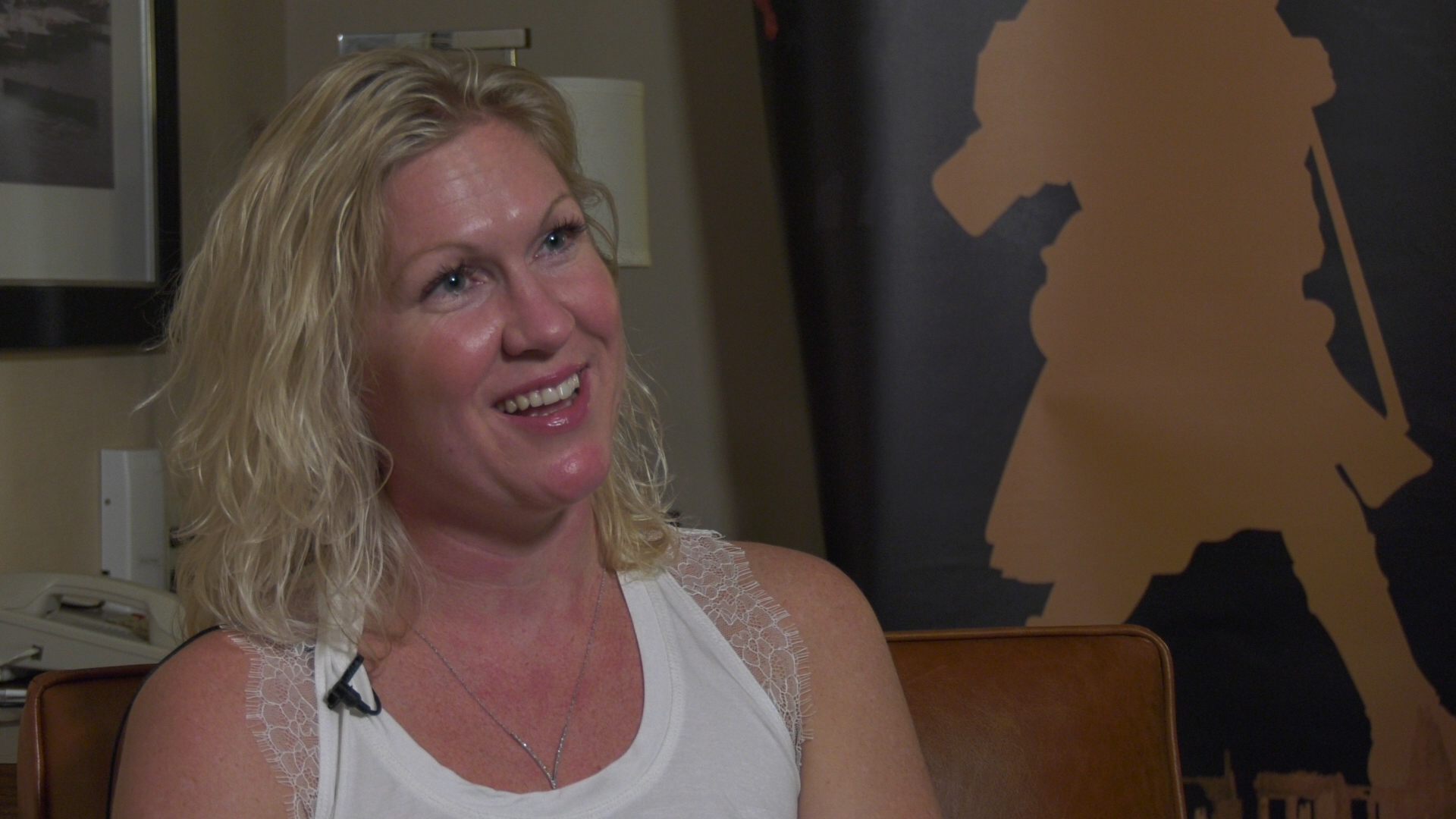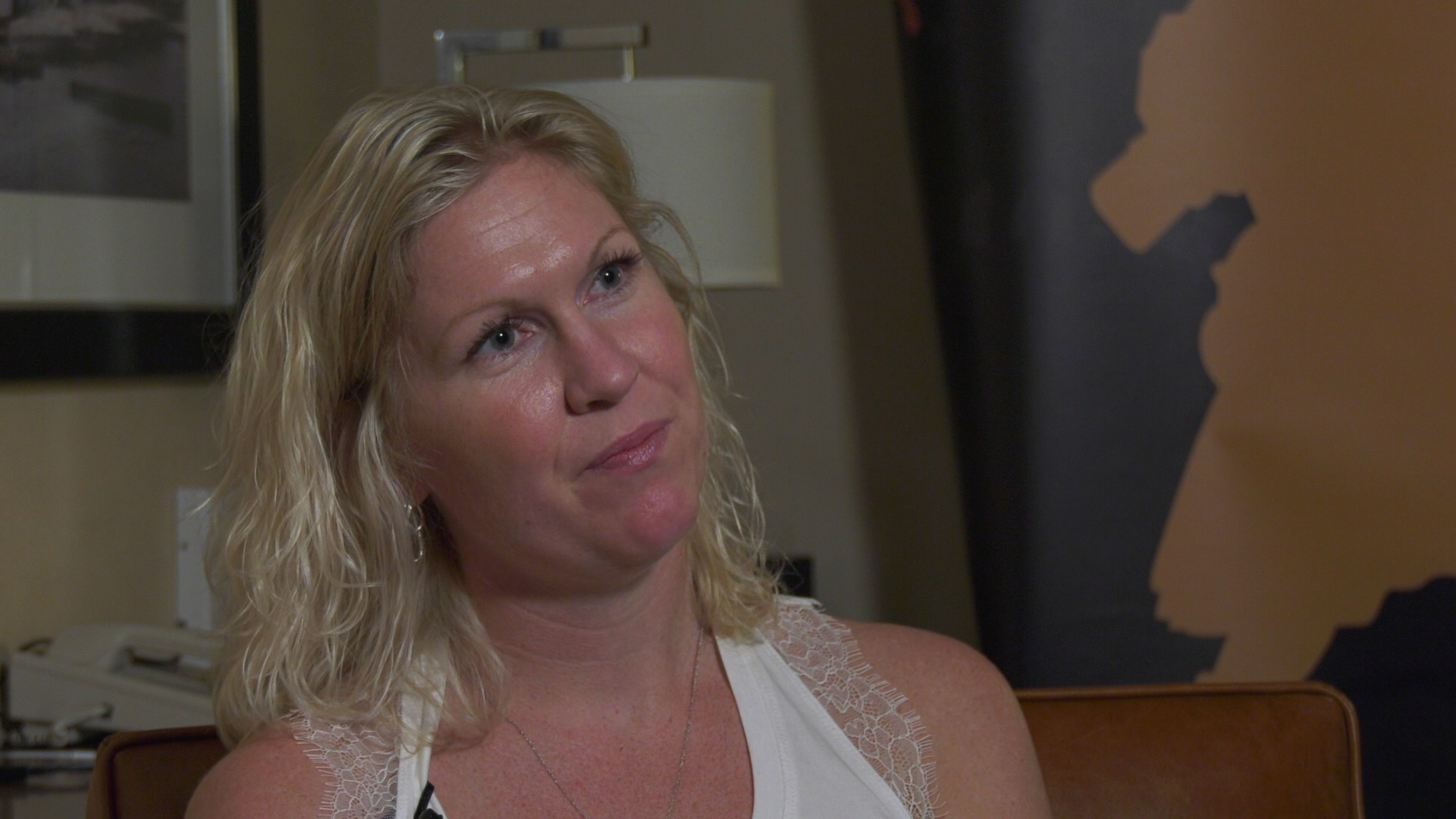So we were about maybe a week,
ten days to being home.
Waking up like bolting from sleep.
I had all these dreams of things that
did not even happen.
I call them my “What if?” nightmares.
I think as a female over there I didn’t
want to get kidnapped. I didn’t want,
there was a lot of things you didn’t want to
have happen. And the guys in the platoon,
they were great about, you know,
“I just want to run around that corner and
go pee, ”because you had to squat,
you had to go pee everywhere right so
you would get used to doing that.
The guys were very protective of me
and they were really good about that.
So I had these dreams of I would be
kidnapped or I was raped. Then I was
too scared to go to sleep.
I would bolt awake just sweating, like
“What are you doing Vanessa?”
I didn’t have just this one incident that
I revisited over and over again.
I just dreamed up stuff that never
even happened. So I don’t know if
I was trying to let go of all these
protective factors that were in place
and now I was just processing what
we did to avoid certain things from
happening but I’m telling you the stuff
I dreamed up, nothing even came
close to happen but then I was too
scared to go to sleep.
So I went and met this social
work person. It’s like,
“Okay what’s going on?” I’m like,
“I don’t know these weird things
are happening.”
Anyway we talked for a bit.
I probably saw him for maybe two
months to sort of dump some
garbage out, you know, I had this
no like sense of belonging and all this
and then in time actually I went to PEI.
I met this guy and then I knew
I needed to go somewhere and
start with kind of a ground zero.
So where do you go? You go home.
So I went alone.
My husband said, “What are you doing?”
I said, “I need to go to PEI to sort
myself out” I need to go to where
I know it’s a safe place, and it’s PEI,
nothing is going to happen on PEI.
So I went home.
I slept for two days straight.
I crashed and burned and slept
for whatever reason.
I think I finally just let go. My mother
would come in and check,
“Are you okay?” It was night time.
I couldn’t believe the hours that I slept.
I finally slept. And then I asked my
step-father if I could borrow his car
because I am going to get this
driving thing back.
So we went out in Cornwall,
Meadowbank area .
There’s a couple of bridges,
a very nice scenic drive, you know,
so I got this. She was like,
“Are you good?” I said,
“No like I am home because I need to
deal with some stuff and I know I can
do it but I am going to need time.”
I came home, yes it’s great to see you
guys but I am here for me right now
so my family was super supportive
and they didn’t kind of get everything
that I was going through. I didn’t
share anything, I just told them
I was having trouble driving.
So away I go and pull out on a side
country road. You don’t even see
a car for minutes when you are driving.
So I got this down and then I would,
kind of exposure therapy if you will and
then I practice going over the yellow line.
If there was a pothole I purposely
drove over it, a piece of garbage on the
road I drove over it showing myself
nothing is going to happen,
nothing is going to happen.
I knew it wasn’t going to happen.
Once I got my confidence back with that
the other things started to settle so and
I read up on different things, you know,
this fighter fight response, how long is
this going to last? What I have learned
at that point and time is that it takes
approximately your body 6 months
to settle. These startle responses like
once you are out of that environment,
like okay I have been home almost
a month now. It wasn’t even that long.
I can expect this to dwindle off but
I needed to put myself out there and
put my back to a door, purposely go to
a restaurant and put my back and
yah Vanessa nothing is going to happen.
Stand in front of an open window and
that’s fine. I purposely did this for weeks,
weeks. And then it did get better, loud noises.
There’s a mechanic shop in our building
that we worked at at the time.
They would drop a tire on the floor or
something there have been a few coffees
gone flying or like there are certain loud
noises or the drop of a toilet seat.
Just a one of, it would still catch me at the
point and time but you could laugh it off
because other people were going through that.
And what I found very interesting when I
went back to work after my time off,
a lot of my peers didn’t come back to work
and no one knew what to do with us.
So the chain of command sent everyone home.
Or if they came back they were angry,
short-tempered, you don’t get it,
you weren’t there, that raw attitude.
Okay go home, you need more time, just go
home like you’re kind of scaring me.
We had a few guys that were kind of scaring
people at work. But they sent them home.
And some of them never came back to work.
Got into therapy, on medications,
some of them that was it, you know,
severe PTSD, medically released, gone.
And you know from that battle group,
from that core group of medics I couldn’t
tell you off the top of my head but there is
a very significant amount of those guys
that are still; a lot of them have their paths
back now but there is a lot of,
a lot of variety of symptoms that people
went through and I think it wasn’t dealt with.
Well no one knew what to do I guess.
I chose to expose myself and go through
that and a lot of people, no into the basement,
into the bottle, into the whatever.
I needed to be better than that so
I wanted to get back into… I knew there
were more tours to Afghanistan coming up.
I needed to get back over there.
And the drive to get on the next Roto was
awesome so Christmas came and went,
went on a career course in January
to get my next medical qualification.
Came home from that, planned a
wedding on PEI for the summer.
We did that and then off to Afghanistan.



